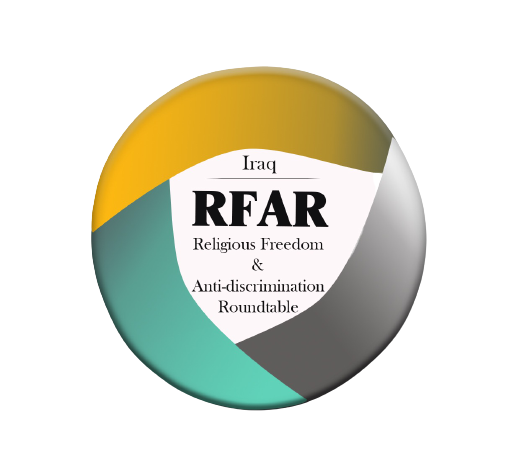Mission.
The Iraq Religious Freedom and Anti-Discrimination Roundtable (IRFAR) exists as a platform for convening civil society organizations, religious actors, and government bodies to coordinate and take collective action to promote and protect the fundamental right of religious freedom for all people. IRFAR seeks to create a culture of dialogue and debate on issues related to religious freedom and the prevention of discrimination.
Model.
The Iraq Religious Freedom and Anti-Discrimination Roundtable (IRFAR) exists as a platform for convening civil society organizations, religious actors, and government bodies to coordinate and take collective action to promote and protect the fundamental right of religious freedom for all people.
The Iraq Religious Freedom and Anti-Discrimination Roundtable (IRFAR) was founded in January 2020. The structure of the IRFAR consists of the Steering Committee (8 members) and general members. The members of the steering come from the Baha’is, Mandaean, Yazidi, Christian, Kakie, and Muslim (Sunni and Shiite) religious communities.
IRFAR members are researchers, specialists, and civic activists who are concerned with the issue of religious freedom and preventing discrimination in Iraq. They do not represent any particular component of the Iraqi society but have a shared vision to develop the mechanisms that facilitate promoting religious freedom and preventing discrimination in the country.
IRFAR works in collaboration with national and international partners to carry out its mission.
Key Principles.
Human Dignity and Mutual Respect: The IRFAR exists to promote religious freedom for everyone and includes people from all religious traditions or none who share a commitment to religious freedom grounded in human dignity and mutual respect for all people.
Collaboration and Coordination: The IRFAR seeks to promote religious freedom through coordinated collaborative efforts that address challenges and promotes to religious freedom through collaborative actions that have an impact in law and in culture.
Dialogue and Debate: The IRFAR works to develop a culture of dialogue and debate that promotes religious freedom and seeks to prevents against discrimination without resorting to coercion or conflict.

